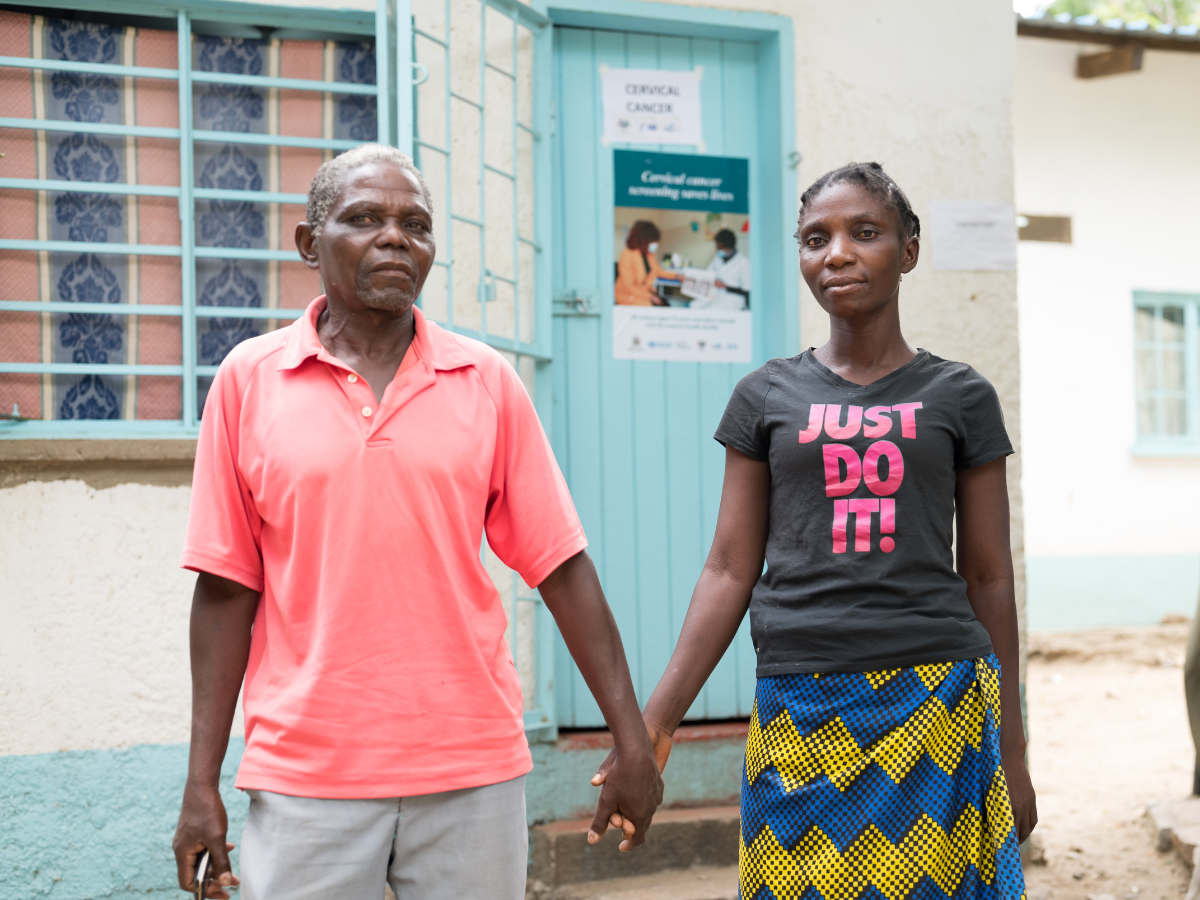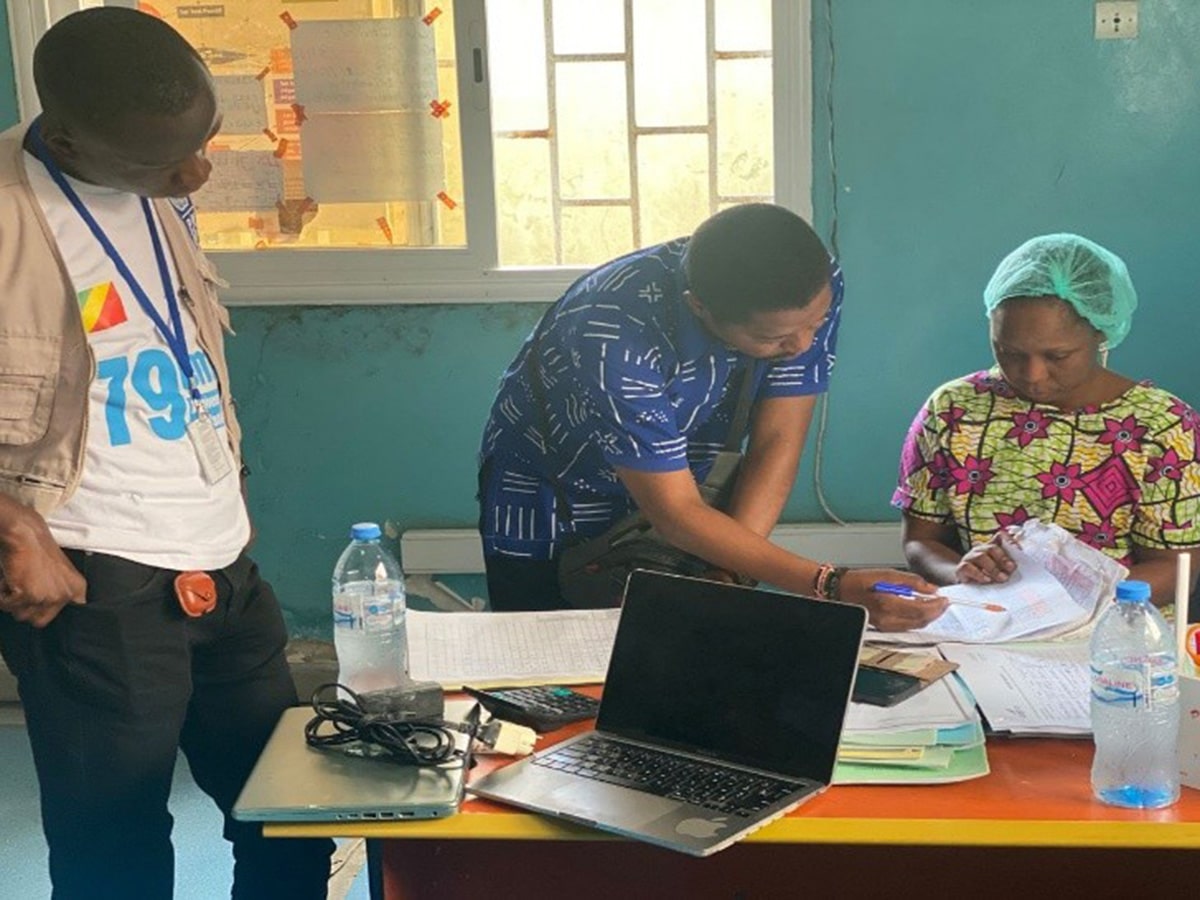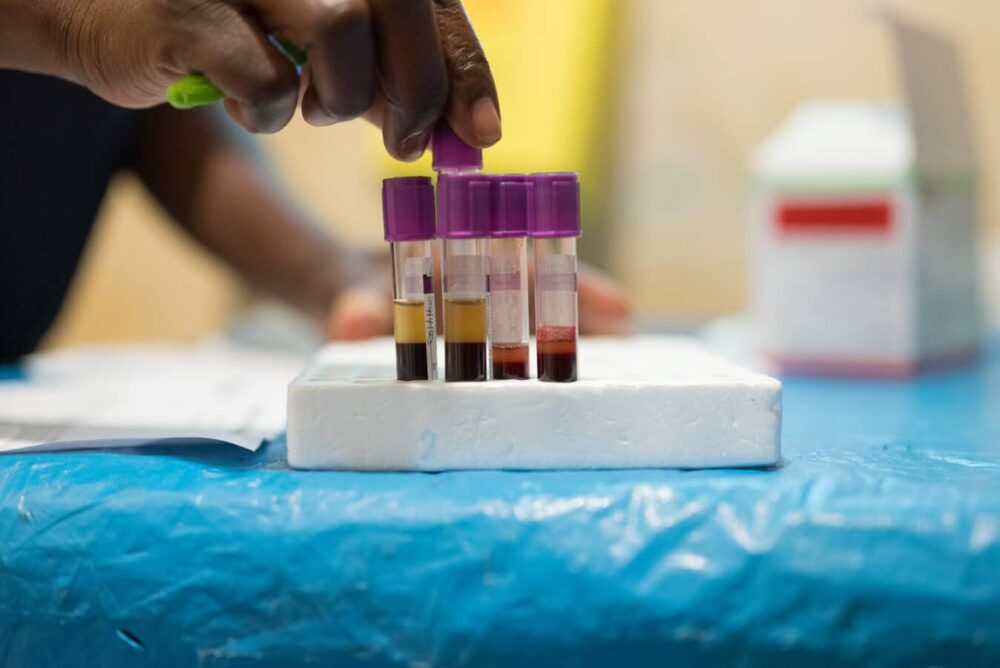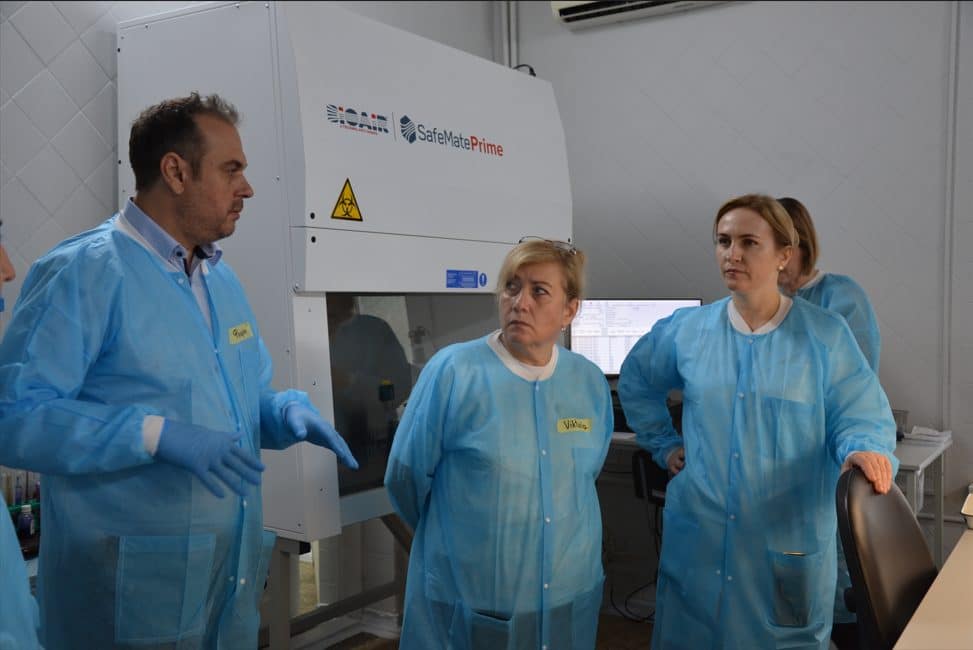Every morning at the Kariba Clinic in Siavonga, Zambia, a nurse carries a flip chart to the facility’s waiting area and begins a presentation on cervical cancer. Women attending the facility for other appointments can sit in on the conversation while they wait, as the nurse covers the basics of cervical cancer, including symptoms and risks.
It is through one of these morning discussions that Esnart learned about cervical cancer screening for the first time. Esnart and her husband were visiting the Kariba Clinic to pick up their antiretroviral pills, which they have been taking for HIV for the past six years.
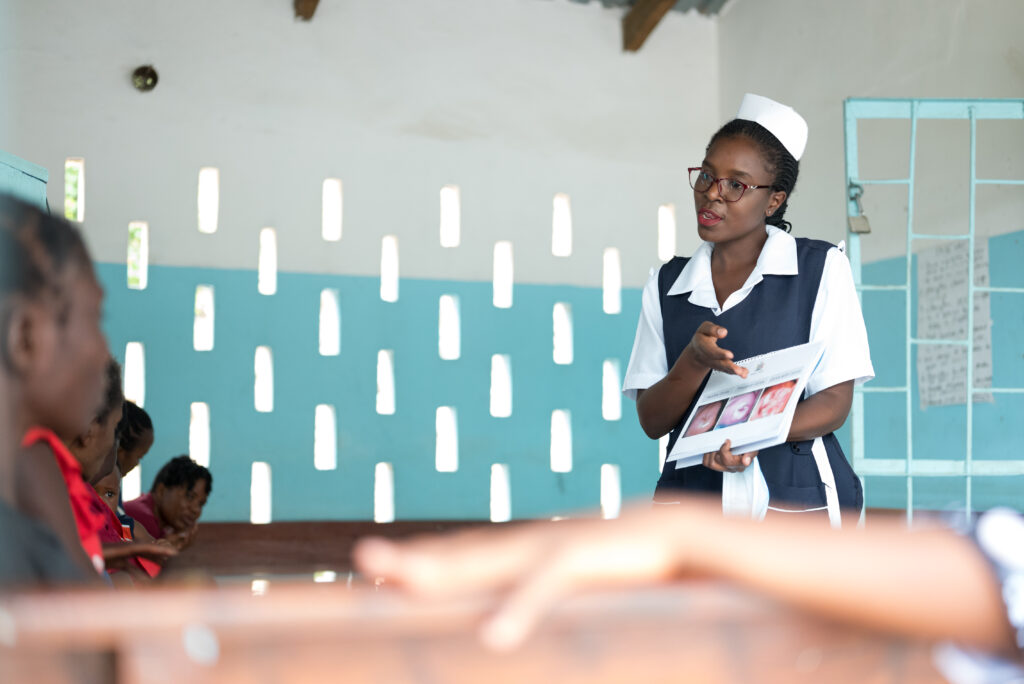
Margaret Nyumbu, a nurse at Kariba Clinic, provides a presentation on cervical cancer in the clinic waiting area
Following the nurse’s presentation, Esnart said, “I learned how cancer starts, the benefits of early screening, and how to be treated if something is detected. I learned how to prevent cervical cancer.”
That day, Esnart decided to get screened for cervical cancer, a lifesaving prevention service.
“There were no challenges,” said Esnart about her experience at the health facility. “Everyone was available to attend to us.”
With support from the U.S. President’s Emergency Plan for AIDS Relief (PEPFAR) through the Centers for Disease Control and Prevention (CDC), ICAP has established eight permanent cervical cancer screening clinics in health facilities across five districts of Zambia’s Southern province, providing cervical cancer screening training to health workers and cervical cancer screening equipment to the facilities. The clinics have catalyzed quality outreach screening services and in-clinic screenings.
Compared to women without HIV, women living with HIV are six times more likely to develop cervical cancer, the leading cause of death among these women. Current estimates indicate that, every year, 3,161 women are diagnosed with cervical cancer in Zambia and 1,904 die from the disease. These grim statistics are why ICAP in Zambia has been supporting the Ministry of Health to implement cervical cancer screening and treatment interventions – targeted screening programs have the potential to significantly reduce incidence and mortality.
“Cervical cancer is a preventable disease, but it is still the most common cancer among women in Zambia,” said Tafadzwa Dzinamarira, MSc, MPH, PhD, ICAP country director in Zambia. “Every year, thousands of women in Zambia are diagnosed with cervical cancer, and many of them die from the disease. According to the World Health Organization, Zambia has the third-highest cervical cancer cases globally. The opening of these new clinics is a major step forward in Zambia’s fight against cervical cancer. These clinics will provide women with access to high-quality screening services, so that they can be diagnosed and treated early, when the disease is most treatable.”
At the Kariba Clinic, since ICAP helped establish cervical screening in November 2021, 315 women have been screened. During that time, clinicians diagnosed and treated four women with cervical cancer.
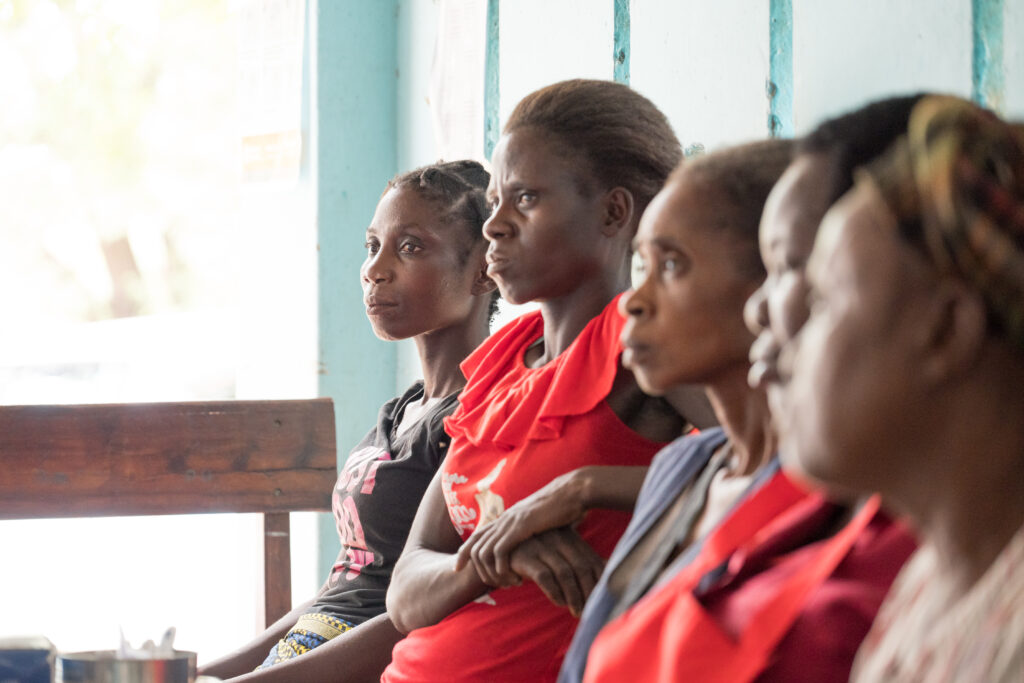
Women receiving health services at the Kariba Clinic attend a presentation on cervical cancer in the waiting room
In addition to providing information on cervical cancer at local clinics, ICAP mobilizes community workers to travel to rural areas to provide cervical cancer information to hard-to-reach populations. In communities, mobilizers share information on how women can access cervical cancer services, assess who might be willing to be screened, and book appointments for their screenings, with the option of attending a clinic or getting screened on the spot.
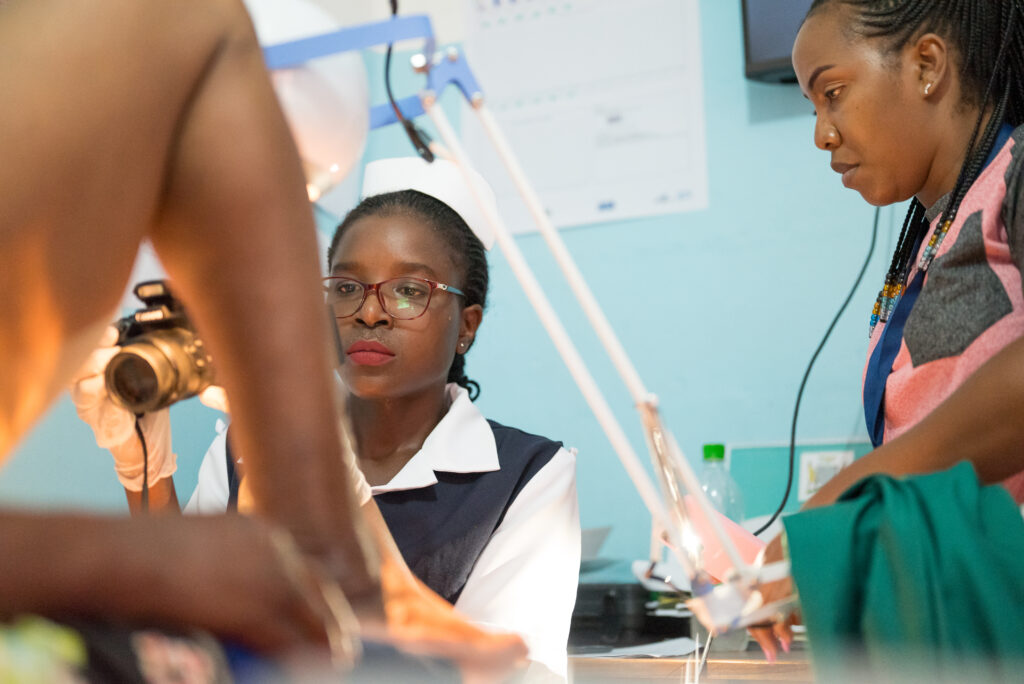
Nurse Margaret Nyumbu conducts a cervical cancer screening at Kariba Clinic
“ICAP is committed to working with the Ministry of Health,” added Dzinamarira, “to ensure that all women in Zambia have access to the screening and treatment services they need to prevent and survive cervical cancer.”
Photos by Artur Francisco for ICAP
About ICAP
A major global health organization that has been improving public health in countries around the world for two decades, ICAP works to transform the health of populations through innovation, science, and global collaboration. Based at Columbia Mailman School of Public Health, ICAP has projects in more than 40 countries, working side-by-side with ministries of health and local governmental, non-governmental, academic, and community partners to confront some of the world’s greatest health challenges. Through evidence-informed programs, meaningful research, tailored technical assistance, effective training and education programs, and rigorous surveillance to measure and evaluate the impact of public health interventions, ICAP aims to realize a global vision of healthy people, empowered communities, and thriving societies. Online at icap.columbia.edu


